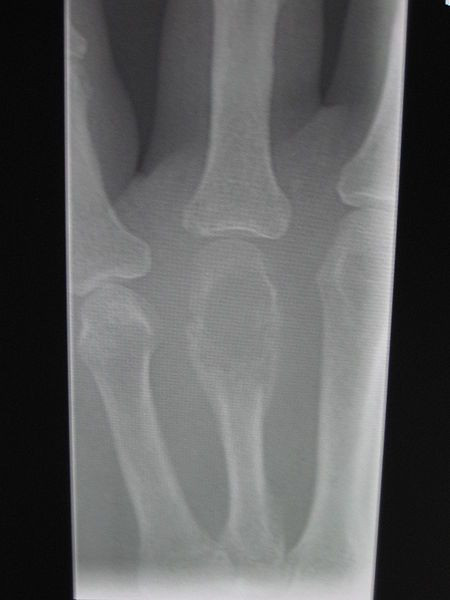Osteoporosis Drug Xgeva Approved By FDA To Treat Giant Cell Bone Tumors

Xgeva, a drug which was approved for women at high risk of osteoporosis in June 2010 under the name Prolia, and then approved under the name Xgeva for bone metastasis from solid tumors, has now been approved for the treatment of giant cell tumors of the bone (GCTB). Although GCTB rarely develops into a dangerous form of cancer, it does destroy healthy bone, causing pain, loss of movement, and bone fractures.
"Today's approval of Xgeva provides a needed treatment option for patients with GCTB who are not surgical candidates or who would otherwise have to undergo extensive, life-altering surgery," said Richard Pazdur, M.D., director of the Office of Hematology and Oncology Products in FDA's Center for Drug Evaluation and Research, in a statement released by the FDA.
The drug targets RANKL (RANK ligand), a protein that binds to RANK (Receptor Activator of Nuclear Factor Kappa B), a receptor on a cell known as osteoclasts. Osteoclasts are specialized cells that live within the bone that are responsible for the natural breakdown of bone in a cycle that usually results in bone regrowth as well. By blocking a factor that encourages bone destruction, the antibody therapy can prevent bone breakage and also target giant cell bone tumors, which also express RANK on their surface. The therapy works because the tumor cells require RANKL contact as a signal to continue growing and proliferating.
The drug is only indicated in patients who cannot have their bone tumor surgically removed, or risk losing a limb or joint as a result of surgery. Because the drug has been on the market for almost three years, good data exists as to the safety of the antibody-based therapy.
Further safety was confirmed in two clinical trials that investigated 305 adolescent or adult patients with GCBT that was inoperable. Of the 187 treated patients, 47 saw their tumors shrink in size after an average of three months. Only three patients saw regrowth of their tumor 20 months after the treatment.
Xgeva is part of a new class of drugs, which use components of the immune system to block certain processes that result in disease states. The antibody that is used in the treatment, technically called denosumab, binds to RANK ligand and blocks it from binding to a receptor (RANK) on the surface of another cell. Because GCTB appears to develop from osteoclast-like cells, it is likely that blocking a survival signal for the tumor cells may aid in their destruction.



























